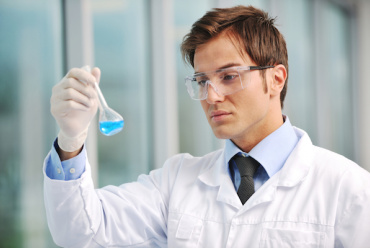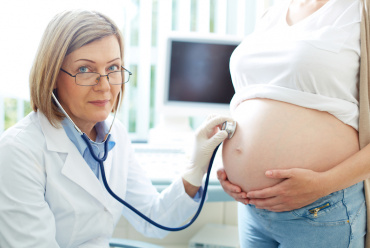Information for patients
- Because you don't need a referral
- Because you can obtain professional and discrete advice
- Because you always have accurate results: by mail, by courier or on the web
- Because you can always consult professionals about your results for free
- Because here each of our patients is aVIР
- Because here we offer you medical comfort
- Because the laboratory works for you each and every day of the week, including Saturday and Sunday
- Because we wish to be of service to you with the PROFESSIONAL INTEGRITY of the „NADEJDA“ laboratory staff.
- The laboratory is a healthcare institution registered under the Healthcare Institutions Act.
- Laboratory staff work only with strictly individual systems for the safe taking of blood and other biological materials
- Clinical laboratory "NADEJDA" works ONLY with closed systems for DISPOSABLE sampling by globally recognized manufacturers of laboratory materials and of laboratory equipment. Containers are factory-sealed and the air is removed from them: i.e.a blood sample test is done under the effect of a vacuum and not as with other methods under the influence of pressure in the vein. Needles for sampling have a special rubber stall and are laser-sharpened, which minimizes to the greatest extent the injury at the injection point.
- Confidentiality of personal data and results
- Daily internal checks of apparatus and kits
- Continued participation in the National System for External Laboratory Control
- Unique identification of all samples
- All of the biological material is individually labeled by placing a unique barcode on each sample of each patient.
- Laboratory analysis solely on the basis of approved methods, equipment and reagents
- Results can be obtained at the end of the same day in case of emergency. Receipt by mail, courier and Internet
- The sampling rooms are equipped with air evacuation and air conditioning systems and are disinfected every few hours with disinfectants recommended by RHI. The team works in good faith and strict observance of rules for disinfection and sterilization in absolute conformity with European standards.
- Ecological thinking and action
The laboratory works for separate collection of waste. The team ensures that no materials or chemicals representing a danger to people or the environment leave the room for whatever reason.
For the accurate results of certain investigations we need your help, too.
Please observe the following guidelines for individual samples:
COMPLETE BLOOD COUNT
Hemoglobin, leukocytes, hematocrit, etc. - in the morning on an empty stomach
URINE
For a general test - the first morning urine stream in a chemically-clean container
For urine culture – the middle portion of the first morning urine stream in a sterile container
For 24 calciuria/phosphouria - urine collected for 24 hours in a clean container and a record of its quantity
BIOCHEMICAL STUDIES
Blood sugar - in the morning on an empty stomach
Blood glucose profile - following the schedule provided by a doctor
Fat profile, liver samples - the night before the investigation do not consume fatty foods or alcohol
ELECTROLYTES, TRACE ELEMENTS
Studies are made after a 10 day pause in the intake of preparations containing the elements to be studied
HORMONES, TUMOR MARKERS – In the morning, on an empty stomach, without coffee intake
PROGESTERON, PROLACTIN – on the 21th day of the beginning of the cycle
FSH, LH, E2 - between the 3rd and 8th day of the menstrual cycle
PSA /prostate specific antigen/ - an important prognostic test for prostate disease in men - must be tested at least 10 days after digital rectal examination of the gland by a urologist.
MICROBIOLOGICAL TESTING
Vaginal secretion - do not perform vaginal lavage or douching in advance
Throat swabs - in the morning before eating without brushing or cleaning the teeth
Nasal/ear secretion - at least 12 hours after application of local medications
RESULTS
Each lab patient receives a unique barcode for his or her tests. In order to maintain the confidentiality of patient data, results are received in person upon presentation of the personal barcode or password online.
Check your results online »
In order to maintain the confidentiality of your results, please use of one of the following options available for obtaining them:
1. Receipt of the results in person by the patient in the laboratory or by an authorized person to sign the declaration of receipt.
2. By courier – provide the registration desk with a correct address and phone number
3. By fax – give the registration desk a correct fax number and area code
4. On the web – upon registration of your tests you will receive a barcode with a unique № and password to download your results.
Please note : Results from laboratory "NADEJDA" ARE NOT ANNOUNCED OVER THE PHONE
ANEMIA - reducing the number of red blood cells, hemoglobin and hematocrit related to a unit volume of blood
ANURIA - reduction in the urine amount below 100 ml per day
DYSURIA - painful urination
BCC / blood cell counts / - ratio of different types of leukocytes in peripheral blood showing characteristic changes in several disease states
ENURESIS – incontinence
ERYTHROCYTE – red blood cells
INSULIN – pancreatic hormone that lowers blood sugar
SUMMARY blood counts – includes red blood cell count, total leukocyte count, platelets
CREATININE – a degradation product of metabolism
LEUKOCYTES – white blood cells
LYMPHOCYTES – a subset of leukocytes
LIPIDS – fats
MCN – Fate Content of hemoglobin in one erythrocyte, caotnoshenie between the Content of hemoglobin and erythrocyte count
MCNC – Average concentration of corpuscular hemoglobin
MCV - Average volume of individual erythrocyte
MICROHAEMATURIA – blood in the urine, which can be only detected with testing
MONOCYTES – a subset of leukocytes
NEUTROPHILS – a subset of granulocytes
NOCTURIA – frequent urination at night
OLIGURIA – quantitative decrease in urine from 100 to 500 ml per day
GOUT – a disease caused by high levels of uric acid in blood
POLYURIA – quantitative excretion > 3 liters a day
FULL BLOOD COUNT – blood counts and short subgroups of leukocytes
RETICULOCYTES – young, immature red blood cells
REFERENT VALUES – normal values
ESR – measuring the speed of sedimentation of blood cells, the surest sign of the presence of inflammation in the body
TRANSAMINASE – cellular enzyme in the liver
TRIGLYCERIDES – neutral fats
THROMBUS – a blood stopper in the arteries or veins
THROMBOPENIA – low amount of platelets
PLATELETS – blood platelets important for blood coagulation
TUMOR MARKERS - biological substances produced by the tumor cells themselves, and healthy tissues under the influence of a malignant process.
UREA – breakdown product of purines
"AVERAGE PORTION" URINE – a portion of urine collected in the middle of urination
PCV – the ratio of the volume of blood cell counts to its total volume
HEMOGLOBIN – the red dye of blood
HYPERGLYCAEMIA – high blood sugar
HYPOGLYCAEMIA – low blood sugar
HEMATOCRIT – lipoic, fat like substance, whose high values in blood condition the risk of atherosclerosis
Literature:
1. “Guide of laboratory tests” under the edition of Dr. A. Zhitarska,
2. “Fundamentals of clinical laboratory diagnostics“ of Assoc. Prof. Dr. R. Pateva




